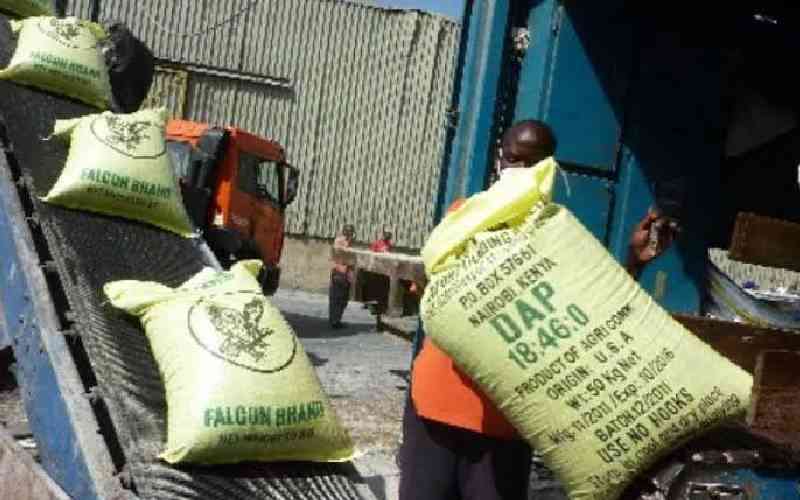×
The Standard e-Paper
Smart Minds Choose Us

The government has started distributing subsidized fertilizer to farmers ahead of the long rains planting season.
Speaking in Nairobi, the government spokesperson Isaac Mwaura said the fertilizer will be issued to registered farmers at Sh2,500 per bag.